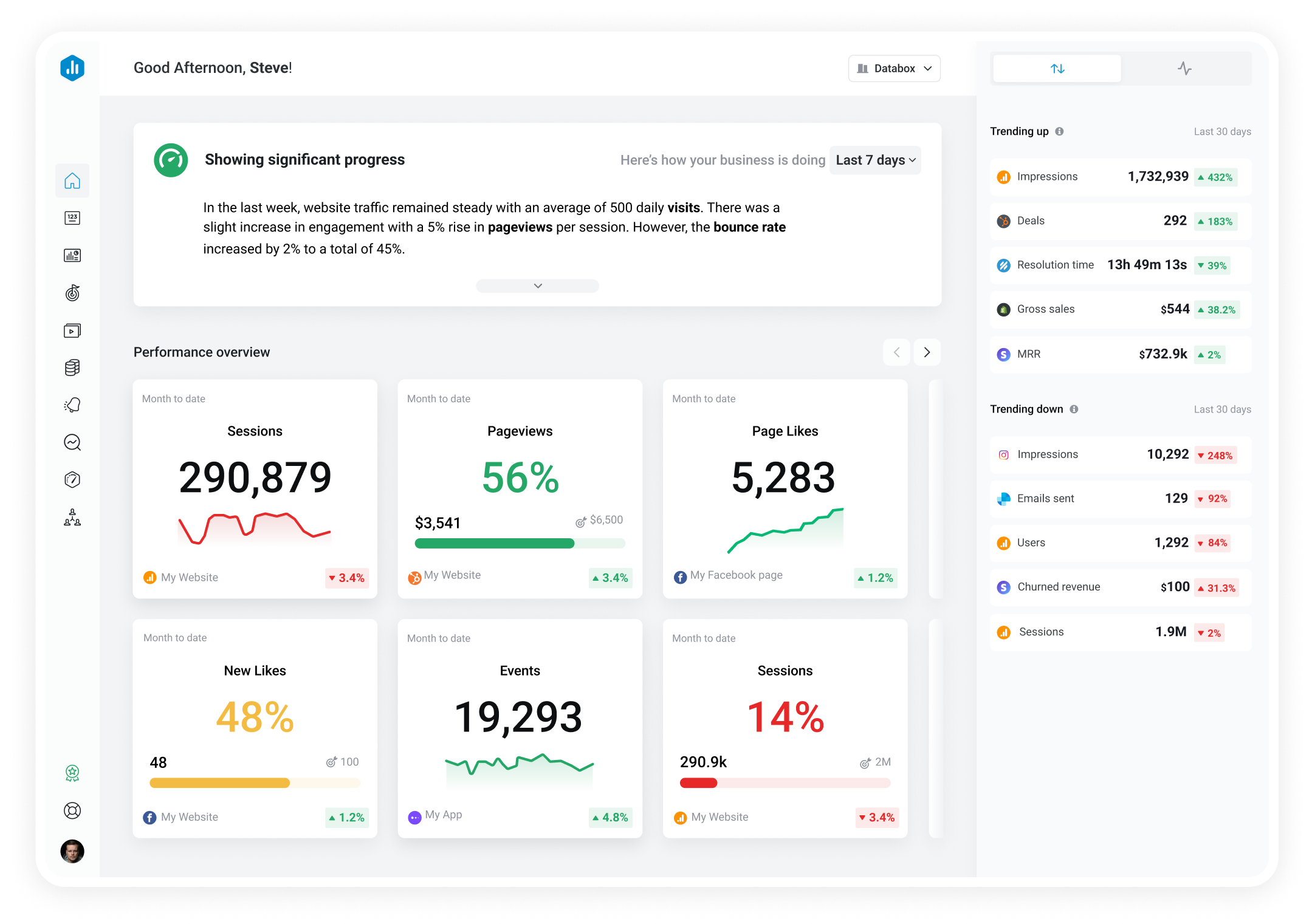Track all of your key business metrics from one screen
GET STARTED
 Shopify
Taxes (POS)
Shopify
Taxes (POS) Number of taxes associated with a sale or return during specified date range.
With Databox you can track all your metrics from various data sources in one place.
Databox is a business analytics software that allows you to track and visualize your most important metrics from any data source in one centralized platform.
To track Taxes (POS) using Databox, follow these steps:
 Goals
Goals Scorecards
Scorecards Metric Digest
Metric Digest Metric Builder
Metric Builder Data Calculations
Data Calculations Performance Screen
Performance ScreenThe (POS) metric will include data from the retail stores only. The non-(POS) Basic metric can include both online and POS values.
